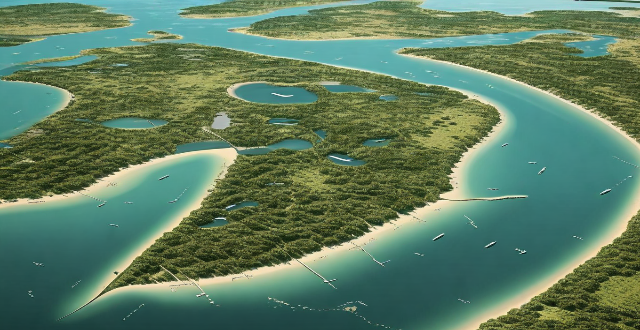Small island states face challenges in climate governance due to limited resources, vulnerability to climate change impacts, lack of representation in international negotiations, dependence on fossil fuels and tourism, and limited access to technology. Addressing these challenges requires collaboration between small island states, regional neighbors, and the international community.

Challenges Faced by Small Island States in Climate Governance
Small island states face a myriad of challenges in climate governance due to their unique geographical and socio-economic circumstances. These challenges are often compounded by the limited resources and capacity available to these states, as well as their vulnerability to the impacts of climate change. In this response, we will explore some of the key challenges faced by small island states in climate governance.
1. Limited Resources and Capacity
One of the primary challenges faced by small island states is the limited resources and capacity available for effective climate governance. This includes financial resources, technical expertise, and institutional capacity. Small island states often have limited budgets for climate-related initiatives, which can make it difficult to implement robust policies and programs aimed at mitigating and adapting to the impacts of climate change. Additionally, these states may lack the technical expertise and institutional capacity required to develop and implement effective climate policies and strategies.
2. Vulnerability to Climate Change Impacts
Small island states are particularly vulnerable to the impacts of climate change, including sea level rise, extreme weather events, and changes in temperature and precipitation patterns. This vulnerability is exacerbated by the limited resources and capacity available for adaptation measures, as well as the fact that many small island states are heavily reliant on coastal ecosystems and marine resources for their livelihoods. As a result, these states face significant challenges in terms of protecting their populations, infrastructure, and ecosystems from the adverse effects of climate change.
3. Lack of Representation and Influence in International Climate Negotiations
Small island states often struggle to have their voices heard and influence international climate negotiations, given their relatively small size and limited resources. This can make it difficult for these states to secure the support and funding needed to address their unique climate governance challenges. Additionally, small island states may be subject to pressure from larger, more influential nations during climate negotiations, which can further limit their ability to advocate for their interests and priorities.
4. Dependence on Fossil Fuels and Tourism
Many small island states are heavily reliant on fossil fuels for energy production and transportation, as well as tourism for economic growth. This dependence can create significant challenges in terms of transitioning to low-carbon economies and reducing greenhouse gas emissions. Additionally, the tourism industry is highly vulnerable to the impacts of climate change, which can threaten the economic stability and livelihoods of small island states that rely heavily on this sector.
5. Limited Access to Technology and Innovation
Small island states often have limited access to technology and innovation that could help them address their climate governance challenges. This includes both physical infrastructure (such as renewable energy technologies) and intangible assets (such as knowledge and expertise). The lack of access to technology and innovation can hinder efforts to mitigate and adapt to the impacts of climate change, as well as limit opportunities for economic development and diversification.
In conclusion, small island states face a range of challenges in climate governance due to their unique geographical and socio-economic circumstances. Addressing these challenges requires a collaborative effort between small island states, their regional neighbors, and the international community to ensure that these vulnerable nations are able to effectively mitigate and adapt to the impacts of climate change.